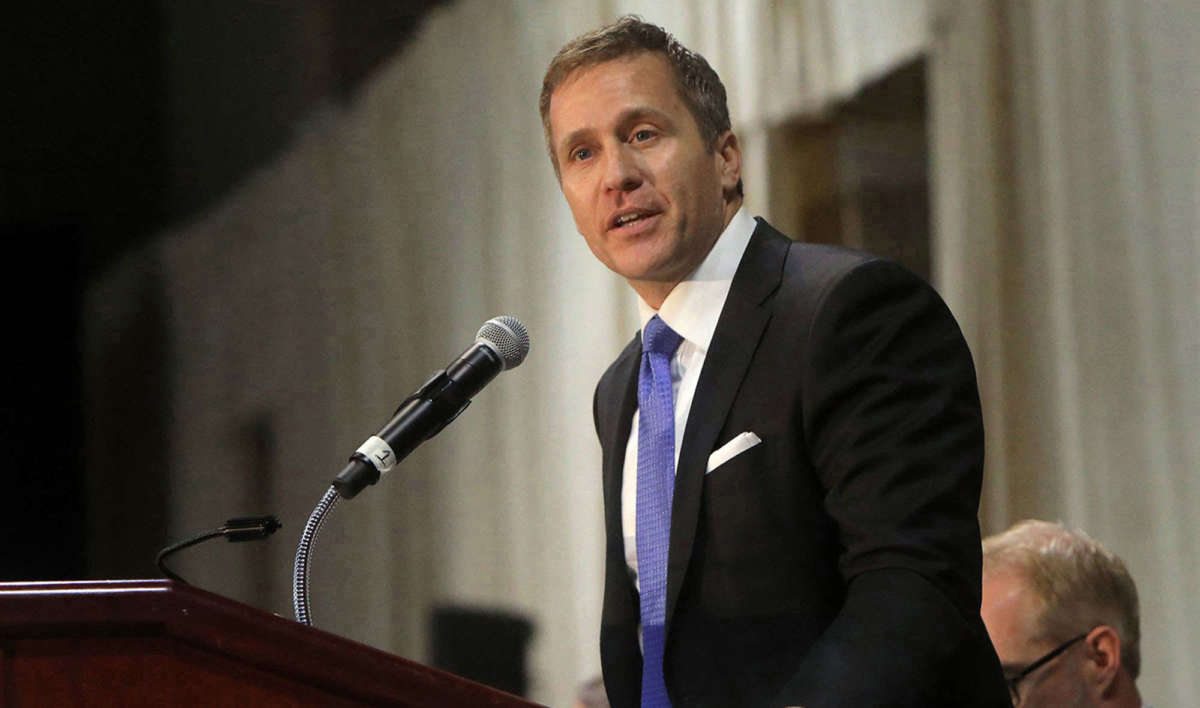Support justice-driven, accurate and transparent news — make a quick donation to Truthout today!
Missouri has embarrassingly made international headlines several times as of late. In January 2018, then-Gov. Eric Greitens admitted to having an affair and was subsequently probed for blackmail and assault. That February, he was formally charged. That April, a bipartisan report was released by the Missouri House Special Investigative Committee on Oversight, which detailed graphic allegations against the former governor. This prompted Missouri’s then-Attorney General Josh Hawley to call on Greitens to “resign immediately.”
The following month, Greitens ultimately did resign, after having served just under 17 months of his 48-month term. The crowning achievement of Greitens’s short tenure was the passage of a “right-to-work” bill, which ended up being rejected by Missourians in a statewide referendum.
Hawley, meanwhile, ladder-climbed his way to the U.S. Senate, then made international headlines himself by becoming the first U.S. senator to say he’d dispute the certification of Joe Biden’s Electoral College victory. Later, Hawley fist-pumped supporters of former President Donald Trump into a violent frenzy, accepted no responsibility for any of the chaos that ensued, and then cried foul when a private business decided it didn’t want to publish his book. Former Missouri Sen. John Danforth now regards supporting Hawley as “the biggest mistake [he’s] ever made in [his] life.”
Since leaving office in the wake of scandal, Greitens has sought to rehabilitate his image in hopes of returning to politics. He rejoined the Navy (thanks to an intervention by then-Vice President Mike Pence), he donated N95 masks to the Columbia Fire Department (which ended up being faulty) and he hosted a television show (which few have heard of). Shortly after U.S. Sen. Roy Blunt announced that he wouldn’t be running for re-election in 2022, Greitens quickly threw his hat into the ring. He has since been endorsed by various Trump sycophants, including Rudy Giuliani.
Today, Hawley claims that he stands by his 2018 call for Greitens’s resignation, yet also admits that he’ll “support the Republican nominee…whoever it is.” Despite being former rivals, the two do have a lot in common: Both are chasing after Trump supporters, and both have a history of questionable fundraising tactics. Hawley, for instance, sent out funding pleas at the same time that extremists were storming the U.S. Capitol, and it wasn’t too long ago that Greitens was courting dark money and improperly dipping into a charity donor list.
Throughout most of the 20th century, Missouri was regarded as a bellwether state, as Missourians accurately voted for the winner in nearly every presidential election. In the last few decades, however, Missouri has turned from purple to a deep red. Still, Democrats do occasionally win state-wide races, particularly when their opponents help out. In 2012, for instance, Democratic U.S. Sen. Claire McCaskill was able to retain her seat against Republican Todd Akin after he sparked controversy by making a comment regarding “legitimate rape.” McCaskill was later unseated by Hawley in 2018.
Some conservative commentators fear that Greitens might end up being Todd Akin 2.0. In other words, the controversy surrounding Greitens may end up costing Republicans a seemingly “safe” seat. In this case, Greitens winning the Republican primary would probably be advantageous for progressives, as it could provide Democrats with an opening to grow, or at least retain, their Senate majority (once one factors in the two independents that caucus with Democrats, as well as Vice President Kamala Harris’s tie-breaking vote).
On the other hand, if Greitens wins the Republican primary and Democrats can’t rally around a strong candidate, Missouri could end up making international news again by electing a disgraced alleged blackmailer to serve, as senator, alongside an agitator of the Capitol attack. Instead of a bellwether indicating the American political climate, Missouri could become a funhouse mirror reflecting a perverse distortion of American politics.
Speaking against the authoritarian crackdown
In the midst of a nationwide attack on civil liberties, Truthout urgently needs your help.
Journalism is a critical tool in the fight against Trump and his extremist agenda. The right wing knows this — that’s why they’ve taken over many legacy media publications.
But we won’t let truth be replaced by propaganda. As the Trump administration works to silence dissent, please support nonprofit independent journalism. Truthout is almost entirely funded by individual giving, so a one-time or monthly donation goes a long way. Click below to sustain our work.
